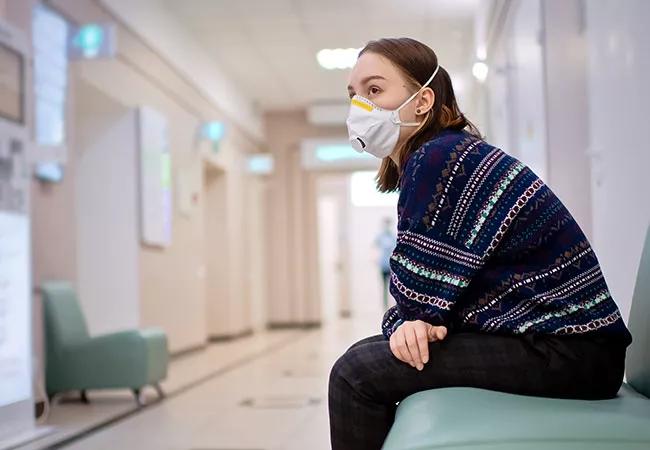Helps prevent patients from being lost to follow-up

Image content: This image is available to view online.
View image online (https://assets.clevelandclinic.org/transform/830f73b8-cc86-418c-a6bb-7025b9a08375/650x450-Pediatric-Rheumatology-Brooks_jpg)
650×450-Pediatric-Rheumatology-Brooks
Pediatric and adolescent rheumatology patients often have conditions requiring lifelong care. The pediatric rheumatologists at Cleveland Clinic Children’s have instituted a program that gives their young patients increasing responsibility for their own care as they mature. The goal is to ensure that, over time, patients develop the skills and knowledge necessary to make a successful transition to adult providers by their mid-20s.
Advertisement
Cleveland Clinic is a non-profit academic medical center. Advertising on our site helps support our mission. We do not endorse non-Cleveland Clinic products or services. Policy
The program is the brainchild of pediatric rheumatologist Elizabeth B. Brooks, MD, PhD, who is also trained in adult rheumatology.
“I have seen how difficult it can be for young adults to go from the pediatric environment, in which their parents and doctors are largely in charge, to the adult model of care, where they are responsible for their own decisions and actions. Unless they understand what adult providers expect of them and are able to comply, they may simply drop out and be lost to follow-up,” she says.
The right time to start the transition process is dictated by the maturity of the child. Dr. Brooks begins testing the waters by focusing her attention on the child and addressing the parents only when the child is unable or unwilling to answer a question.
Gradually, and with a subtle approach, she encourages her patients to learn key aspects of their disease and how it is managed. “My goal is to help them learn about the medications they take, what these meds are for, how to take them and what happens if they don’t take them,” she explains.
“They must learn to take their meds on their own, without their parents reminding them. While they will not be able to call for refills, because they are underage, they should let their parents know when a refill is needed.”
As the patients mature, she encourages them to take the lead at appointments, speaking up about how they feel and expressing any worries or concerns they may have.
“It’s no different than in a family situation, where you give your kids more and more responsibility as they age,” she explains. “At some point, the handholding has to stop.”
Advertisement
In the process of raising children to become responsible adult patients, it is not unusual to have rough patches. Patients may have trouble accepting a diagnosis, get bullied at school, or become anxious or depressed. “A child who suddenly stops taking their meds is a red flag,” says Dr. Brooks.
Physicians should take such concerns seriously. If you have a good relationship with a patient starting from a young age, and they trust you and like you, you may be able to talk them through a difficult time,” she says. “If not, referral to a psychologist is in order.”
Social workers also can be valuable allies, particularly in helping patients find health insurance and coverage for medications after age 18.
There is no graduation date, but there is a checklist of things that should be mastered before a child is ready to transition. Approximately every six months, Dr. Brooks asks older teens and their parents to complete a questionnaire that helps her gauge how well the patient understands how to obtain medication refills, schedule a follow-up appointment, who to call if they need help and other necessary actions.
“Once it appears the child has mastered the important lessons, we start discussing that it may be time to move on to an adult provider,” she says.
Even if you carefully prepare your patients to transition to an adult rheumatologist, finding one who is willing to accept young adult patients may be difficult. “These patients are initially very time-consuming. Not every adult rheumatologist is interested in taking them,” she says.
Advertisement
This makes the ones who will, valuable partners indeed. “I suggest you establish a relationship with one or two providers who will take your patients and simply refer to them.”
Advertisement
Advertisement
Findings hold lessons for future pandemics
One pediatric urologist’s quest to improve the status quo
Overcoming barriers to implementing clinical trials
Interim results of RUBY study also indicate improved physical function and quality of life
Innovative hardware and AI algorithms aim to detect cardiovascular decline sooner
The benefits of this emerging surgical technology
Integrated care model reduces length of stay, improves outpatient pain management
A closer look at the impact on procedures and patient outcomes